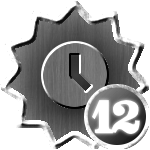-
Posts
418 -
Joined
-
Last visited
-
Days Won
18
Plutokat last won the day on July 24 2016
Plutokat had the most liked content!
About Plutokat

- Birthday 11/06/1987
Contact Methods
-
Website URL
http://www.tylerjustinhughes.com
Profile Information
-
Biography
Tyler Hughes holds a bachelors degree in music composition from Stephen F. Austin State University and a Masters Degree in music from Texas Tech University. He studied under Dr. Stephen Lias during his undergraduate studies and continues his education at Texas Tech University in pursuit of a Doctor of Musical Arts degree under the tutelage of Dr. Peter Fischer. He has amassed an extensive body of work, and, while studying, he is also a working composer, with multiple commissions in progress. He is an active member of the National Association of Composer, USA (NACUSA) and of Society of Composers (SCI) where he served in officer positions, including president, of the Raider Chapter at Texas Tech from 2012 to 2015. I. He has had music performed at three Texas chapter NACUSA conferences and won the prize for Best Undergraduate Composition in 2011. Mr. Hughes hopes to teach music composition and theory at the collegiate level while continuing to compose.
-
Gender
Male
-
Location
Lubbock, Texas
-
Occupation
Composer
-
My Compositional Styles
Contemporary
-
Notation Software/Sequencers
Finale 2014
Recent Profile Visitors
The recent visitors block is disabled and is not being shown to other users.
Plutokat's Achievements
-
Start composing again. Since I started teaching middle school choir, I have had no time to write music. Get my choir to sing music I write for them. Start doing Youtube videos again. (preferably video essays analyzing music) Write and publish more arrangements Send music off to competitions like I usually do.
-
I’m doing research on composition pedagogy for my bibliography and research class, and I wanted to get some general anecdotal data about how you were taught composition or how you taught yourself composition. Answer the following questions. They will be broken up into three parts; first part is general questions about how you started, second part is for those who went one to study composition with a private teacher at a university or with a individual teacher, third part is for those who have never had a teacher. General questions: 1. When did you start studying or playing music? 2. When did you start composing and why? 3. How do you write your music (do you use notation software, hand written scores, or in sequencers such as DAW and samplers). Composers who had teachers (i.e. you had a composition professor or a private teacher who taught you composition as oppose to music teachers that allowed you to compose. I have to be very specific): 1. When did you begin taking composition lessons? 2. Where you required to present a portfolio or some kind of evidence of your composition prior to beginning your lessons? 3. Where did you take composition lessons (what university or what region of the world i.e. hometown or country) 4. What were your composition lessons like (how were they structured, what did you do in them, how long were they) 5. What was your composition teacher like (did they allow you to write what you want or did they give you assignments like “what in this style” or “write for this ensemble or instrumentation” etc.) 6. Where your composition lessons a positive or negative experience? Composers who are self-taught (i.e. you had no private or group lessons for specifically composition, aside from a composition based assignment in a music class or ensemble): 1. Was the decision to go without a composition teacher a conscious decision or a decision out of circumstance? Explain? 2. What are some of the challenges you have faced being self-taught? 3. What do you believe some of the strengths are to being self-taught? 4. What are some of the perceptions you have about taking composition lessons (what do you think it would be to take composition lessons) 5. Do you think taking composition lessons would be a benefit or a detriment to your composition process? why?
-
Its really just in the style of Japanese 90s pop/easy listening/Adult alternative music re-orchestrated to fit the soundtrack to Sailor Moon. You shouldn't have any issues recreating it in FL Studio.
-
Guess you can call me Dr. Hughes now because I passed my doctoral defense!!!!
- Show previous comments 4 more
-

-

Well done! Hopefully you'll now write some kind of "celebratory" music to share with us ;) ... Congrats and all due respect to Dr. Hughes!
-

-
I would say this is a hypothetical but for me, these are close to the actual choices I have to make this coming fall as I graduate and apply for jobs. Currently, I have chosen option B, the college professor job. Many of the places I have applied to, what you have described is actually what I have to choose from. I choose B, not just because Im getting my DMA and thats what you usually do with a doctorate, but because I have more freedom in that field. Yeah you don't have unlimited access to a large ensemble at where ever you teach at, but I don't need that. You do however, have access to unlimited performers via colleagues and students not to mention you are in an environment that encourages you to create work. Many universities require their music faculty to stay active in their field, which means I would work hard to get performances and commissions outside of my place of employment. Not to mention, I can get raises and promotions in the academia world than I can get in church and community music jobs. I can also move to a higher paying university and make about 100k a year with tenure.
-
My secondary skills are in music theory and music history and teaching those subjects. A tertiary skill would be singing and conducting choir. I plan on getting my teaching certification as a back up plan.
-
My catalog (or works list) is comprised of music that is ready for performance and not every piece I have ever wrote. I have written about 200 pieces of music since 2004 when I started composing seriously. However majority of them are either embarrassingly bad, don't represent me anymore, or are not in any condition to be performed. My works list looks like this and you can see it is much smaller than what I have actually written. But if I needed music for a recital, they would come from this list. In my work list I also include what was performed as that is typical for CVs that are sent off to potential jobs. List of Compositions Orchestra Interpretations on Folk Melodies · Reading Session with Texas Tech Symphony Orchestra December 2011 Symphony No. 1 · Unperformed Symphony No. 2 Ocean Symphony · Unperformed Choir Angus Dei – SSAA choir · Premiered April 2011, Senior Recital Next to of course God, America I love thee – SATB choir · Unperformed O Gracious Light – SSAATTBB choir · Premiered May 2015 Composers Choral Concert Spring Rain – SSAA choir and piano · Premiered March 2009, National Association of Composers USA Texas Chapter Conference · Performed April 2011, Senior Recital Wind Ensemble and Band From Home to the Festival and Back Again – Concert Band (Grade III) · Unperformed Motif – Wind Ensemble (College Level Ensemble) · Unperformed The Luminaries – Concert Band (Grade V) · Unperformed Larger Chamber Music Hurried and Off Balance – Violin, Cello, and Piano or Tenor Saxophone, Trombone, and Piano · Unperformed Thoreau Teasdale Cycle – SATB choir, Soprano and Bass Soloist, String Quartet, and Percussion: Four Movements · Premiered March 28th 2013 Instrumental Solo and Chamber Music Agilitas – French Horn and Piano · Unperformed Bad Night Out Suit – Flute and Piano; Three Movements · Premiered April 2011, Senior Recital Entre Les Trous De La Memoire – Piano · Premiered March 2011, National Association of Composers USA Texas Chapter Conference · Performed April 2011, Senior Recital Interpretations on Folk Melodies (Saxophone Concerto) – Alto Saxophone and Piano; Three Movements · Movement I premiered April 2011, Senior Recital · Movement II premiered April 2013, TTU Composers’ Forum Concert · Movement III premiered November 2013, TTU Composers’ Forum Concert Patency – Flute and Piano · Premiered April 2012, Society of Composers Inc. Raider Chapter Concert Quietude – Violin and Piano · Premiered April 2015, TTU Composers’ Forum Concert Sonata No. 1 – Piano · Performed November 4th 2015 String Quartet No. 1 · Unperformed Trombone in Grave – Bass Trombone · Premiered April 2015, Society of Composers Inc. Raider Chapter Concert Vocal Solo I Wake and Feel the Fell of Day, Not Death – Soprano and Piano · Premiered April 2011, Society of Composers Inc. Raider Chapter Concert I’ve heard the Bells on Christmas Day – Baritone and Piano or Tenor and Piano · Recorded November 2014 Lenten Reminder and Prayer – Tenor and Organ · Premiered March 2014, Sunday Service St. Johns United Methodist Church, Lubbock Texas Render Cycle – Soprano and Piano; Ten Movements · Partial premier April 2014 (two movements), TTU Composers’ Forum Concert · Full premier February 2015, Render: A Recital The Edward Thomas Cycle – Soprano and Piano or Mezzo-Soprano and Piano; Five Movements · Premier April 2011 (first three movements), Senior Recital · Performed February 2015 (four movements), Render: A Recital Electronic and Electro-Acoustic From 95 Poems – Tenor and Pre-recorded Electronics; Three movements · Premiered February 2010, National Association of Composers USA Texas Chapter Conference · Performed April 2011, Senior Recital · Performed April 2011, New Music Exchange with Stephen F. Austin State University and Sam Houston State University Telephone – French Horn and Pre-recorded Electronics · Premiered April 2011, Senior Recital · Performed April 2011, Student Convocation at Stephen F. Austin State University Arrangements Honor, Honor Unto the Dying Lamb – Baritone and Piano · Premiered Frebruary 2014, Sunday Service at St. John’s United Methodist Church, Lubbock Texas I’ve Been Buked – Baritone and Piano · Premiered October 2013, Sunday Service at St. John’s United Methodist Church, Lubbock Texas La Fille aux Cheveux de lin – Full Orchestra · Reading Session with Texas Tech Symphony Orchestra December 2011 Let all Mortal Flesh be Silent – Baritone and Organ · Premiered December 2013, Sunday Service at St. John’s United Methodist Church, Lubbock Texas
-

Question About Doubling The Leading Tone.
Plutokat replied to Derek's topic in Composers' Headquarters
The part writing rules are followed to a point in music of the common practice period, but not in the way you learn in your theory textbooks. The part-writing exercise is really meant to help one understand how harmony works and not meant to be a compositional tool or measuring stick to determine skill. Part-writing in a way is music reduced all the way down to just its harmony, or in Schenkerian terms, down to the Ursatz. Any tonal music can be reduced to this lower fundamental level, and thats where the part writing norms can be found. The music you listen to and see on the score is not the fundamental level, but instead the surface level. Here, you will see music that is idiomatic to what ever instrument its intended, and thus part writing norms are pushed to the way side in order to create the music we hear. And this is where I feel how part-writing is taught makes a miss step. The confusion you are having is very common with those studying music theory. Part-writing doesnt account for arpeggios or alberty bass lines, it doesnt account for when the melody is in the bass, it doesnt account for sudden texture or register shifts. Part-writing norms don't account for TONS of things one will see in actual music because its not suppose to represent surface level music. Unfortunately, many theory textbooks gloss over this fact or neglect it all together. I try to make sure my students know this to some degree when I teach part-writing, but its hard to keep the two separate. However, it does come together when one studies Schenkerian Analysis. I would suggest reading Analysis of Tonal Music: A Schenkerian Approach by Allen Cadwallader and David Gagné. -

Question About Doubling The Leading Tone.
Plutokat replied to Derek's topic in Composers' Headquarters
One must keep in mind that those part writing 'rules' are a small portion of composing. A lot of those 'rules' are broken on the surface level of the music in practice. In the example you gave you might also notice a lot of parallel octaves between the left and right hand (ignoring the obvious ones in the left hand). In part writing, if you are tonicizing a new key, the norm of doubling still apply to the new tonic. But those norms of part writing really apply to a lower level of the music, below the surface. -
All the time.
-
Not really many books. Its mentioned in a few books but not in great details. You will most likely have to look up journal articles like this one. http://www.jstor.org/stable/945265
-
All periods have a development period in which the build upon the stuff that started it. The early 20th century saw a ton of innovation of which many were just so tiresome after a while. There are not many books on 12-tone itself and I can't think of any at the moment. The best book is Post-Tonal Theory by Strauss even though it is dense. Its very complete. You should also look into some of the other -ism that are still growing. Spectralism out of France has been one that has steadily growing since the 70s. Also look into what composers today are doing with all the musical material that has been started since the 1900's.
-
True but patreon.com isn't as strict and demanding as a Patronage contract would be. Its more like constant crowdfunding.
-
Though 12-tone serialism is the most well known and at times in the 20th century the most popular way of organizing pitches post-tonally, its not the only one. Before 12-tone, there was free atonalism. As the word suggest, its less about organization and more about freely composing without a tonal center. This can be problematic because implied tonality can sneak in. Another organization tool is set-theory; which involves organizing trichords, tetrachords, etc. in a way similar to how one would organize tonal triads so to speak. They are labeled by numbers and can be transposed, inverted, and so forth. After 12-tone came total serialism in which all aspects of the music in organized in rows; from the pitches, dynamics, articulations, etc. After that, around 1945, the number of "-isms" kind of died down, especially in the non-tonal realm. Mathematic and performances algorithms were used a lot in the 1950s-1970s. Elements of chance and process were used to organize music making music more interactive and unpredictable in someways. But no one method really took hold and became another kind of "ism" or school of thought like 12-tone has. My theory as to why this is is because one can say we are in the late period of our musical aesthetic period. In the late part of any period you see a lot less innovation and more refinement of what is introduced in a period. We see that now with composers writing in 12-tone but are refining and redesign it. I mention this because as you can see their isn't much more from 12-tone in ways of organizing pitches in a post-tonal way. Something to think about as you research these methods.
-
I submit music to competitions and calls for scores a lot; at least 10 times a year. I mainly submit works that I have already written and often have already been performed or is ready to be performed. I look for competitions and call for scores that fits what I have already written. However, there are competitions and call for scores that are very specific and very niche. Some call for music for unusual; like trombone and piccolo, three percussionist and a tuba, or alto flute and guitar. Many of these calls come from new music ensembles that are just starting out or performers looking to fill their next season with new works but have limited and unusual available performing forces. And unless you are working with these instruments regularly one will most likely not have music written already for these calls for scores. It isn't just limited to small ensembles, however. There are often calls for scores or competitions that have very specific instrumentation, like orchestras that have a infinite number of wind instruments or specific percussion available. I have seen competitions that require composers to submit works that follow a very specific theme or (if it calls for vocal music) use a very specific text. There are also competitions that have very specific timelines for when a piece should have been written--some requiring a work to have been written prior two years of the competition deadline. So this brings me to the conundrum that is the topic of this thread; should one write music specifically for these calls for scores or competitions? Is the stress of producing music to fit the criteria of a competition, that you might not win, knowing that it might never be performed by anyone else? Or should one stick with competitions that fit music that you already have written or have usefulness outside of said competition? What are your thoughts on this topic and have you come upon this situation yourself?




